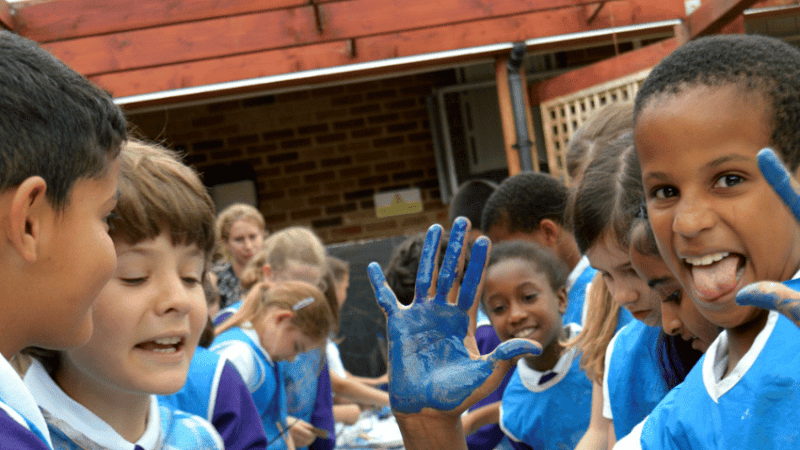True Grit – Be Wary Of Those Who Claim It’s Possible To Directly Teach ‘Character’

Is it really possible to teach self-control and perseverance? Not in isolation, reckons Alex Quigley…

Martin Luther King once said, “Intelligence plus character – that is the goal of true education.” If there were a collective dream for most teachers, then surely that would prove pretty much it.
We all wrangle with that eternal question, How do I get my students to think and to try that little bit harder? If only we could just teach our teens some self-control… Back in the early 1970s, Stanford professor Walter Mischel conducted what have proven to be some of the most famous experiments in psychology: the marshmallow tests.
Just a couple of these sugary little treats seemingly proved a long-held truism for us all – with a little delayed gratification and self-control, we could all be more successful. As our GCSE and A-level students undertake the most important spell of revision in their young lives, these lessons from psychology could be crucial for us as teachers.
The marshmallow test is a simple one. Get to know the student – in Mischel’s case they were the young children of fellow Stanford professors and alumni – then offer them a marshmallow. The trick? Offer them a second – double the booty – if they could delay their gratification and not eat the first. When the experimentees were subsequently tracked in a long-term study, those who delayed their gratification proved more successful.
Grit and growth
Such self-control is often conflated with that fuzzy but widely used term ‘character’. Character teaching in schools is nothing new, of course, though the language changes over time. From Aesop’s fables and philosophy in antiquity, to recent centuries that heralded a Protestant work ethic, we now have the notion, derived from America, of ‘grit’, that translates into a focus on self-control. It describes perseverance toward your long-term goals, through difficulty and boredom (think of our students’ struggles to revise as a good example).
Grit has commonly been twinned with Carol Dweck’s now famous description and analsyis of a ‘growth mindset’ – a theory of intelligence that believes that we can improve and get smarter with effort. With a growth mindset and grit, it is claimed, our students will better deal with failure, and persevere more through challenges in the classroom and beyond.
The trouble is, the promises offered by grit and growth mindset, of strengthening our students’ character and boosting their self-control, make the simplistic assumption that we can directly teach this stuff; whereas the truth that characterises most learning and the workings of the human mind is, perhaps unsurprisingly, a lot more complicated than that.
Beyond measure
This issue with implementation of character teaching in schools has seen Angela Duckworth, the doyenne of grit in America, write an article in the New York Times headed ‘Don’t Grade Schools on Grit’. Duckworth admits that we aren’t sure whether we can teach grit, or indeed, self-control. She guards against hasty and ill-considered implementation in schools. We should heed the warning.
The ‘character growth cards’ used in American KIPP schools purport to measure our students’ self-control, but such measures are flawed and when schools and politicians get a hold of these kinds of assessment opportunities they pretty much always botch them. We need to be circumspect about our ability to teach character or ‘self-control’ and doubly wary of such measures being used to judge students, or schools.
Self-control – or character – lessons have no place supplanting mathematics instruction or the teaching of geography. Policy tourism is often a popular activity for our Department for Education, but they will find no such examples of self-control being taught in China, for example (those students log significant hours working on homework – purportedly a decent proxy for perseverance and self-control).
Leading by example
That said, perhaps there are useful lessons we can share with our students, thereby revealing to them the power of perseverance. At the very least, we can show them the many flaws in the hard-wiring of their brains that see them avoid tricky thinking. Though the evidence suggests that the best learning exists in academic subject domains, and that we shouldn’t, therefore, be trying to teach self-control in isolation, there may be better ways for us to pursue Luther King’s goal of ‘intelligence plus character’.
By focusing explicitly on our students’ metacognition in specific subjects – their planning, monitoring and evaluation of their learning – we can better give them the tools to persevere when they are learning. And we can certainly guide our students towards a better understand of their learning habits and foibles.
Revision is a good example. We can indicate the best ways and places to revise, how to set manageable goals and to self-organise a revision schedule – even how better to fend off the urge to procrastinate.
Ultimately, however, whilst we can lead young people to the deep waters of effective revision, we will not always be able to make them drink. To persevere in the face of this understanding demonstrates valuable character, self-control and grit from teachers themselves.
Alex Quigley is an English teacher and director of learning and research and Huntington School. His latest book, The Confident Teacher, is available now, published by Routledge.
For more information, visit www.huntingenglish.com or follow @HuntingEnglish











